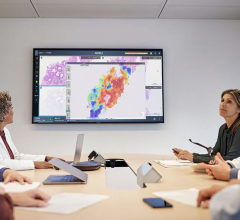March 7, 2016 — M*Modal announced that its clinical intelligence platform has been broadly embraced by physicians in over 150 sites since the launch of the application in 2015. The solution includes Computer-Assisted Physician Documentation (CAPD), augmenting its M*Modal Fluency Direct to deliver automated, real-time and interactive insights to clinicians as they document in the electronic health record (EHR) for continuous improvement in how doctors care for their patients.
More than 200,000 physicians rely on M*Modal’s cloud-based Speech Understanding technology to accurately tell their patients’ stories. A year after the launch, the clinical intelligence application is already used by more than 150 customer sites. This interactive clinical intelligence system automatically brings the right information to the physician at the right point in time within the clinical workflow to deliver smarter care.
By utilizing the CAPD functionality of M*Modal’s speech recognition solution, Fluency Direct, to support clinical documentation improvement (CDI), healthcare organizations have reported a 30 percent reduction in retrospective queries and amendments to the documentation. This significantly increases efficiency and documentation accuracy for physicians. Moreover, 70 percent of physicians utilizing this system are interacting with the clinical insights, increasing physician technology adoption and engagement.
The three keys to such rapid and successful adoption are the accuracy of the insights derived using Natural Language Understanding of both structured and unstructured patient information, the unique ambient user experience, and the ease of technology integration.
“We have successfully and seamlessly integrated M*Modal’s CAPD into our physician workflows by incorporating it into our EHR. This CAPD provides information embedded in current workflows so the information sharing is non-disruptive, but still results in physician behavior change,” said John Showalter, M.D., chief health information officer at the University of Mississippi Medical Center. “Importantly, the real-time information shared can be personalized to maximize efficiency while minimizing workflow disruptions. Advanced analytics about the physician’s documentation can be done retrospectively using the application’s ‘silent-mode’ with no workflow disruption. The combination of real-time support and advanced analytics gives us the knowledge we need to improve our physicians’ documentation practices.”
M*Modal’s interactive documentation system is compatible with all leading EHRs, requiring no deep systems integration for ease and speed of deployment.
M*Modal displayed Fluency Direct with Computer-Assisted Physician Documentation at the 2016 Health Information and Management Systems Society (HIMSS) conference, Feb. 29-March 4 in Las Vegas.
For more information: www.mmodal.com


 April 14, 2025
April 14, 2025 








